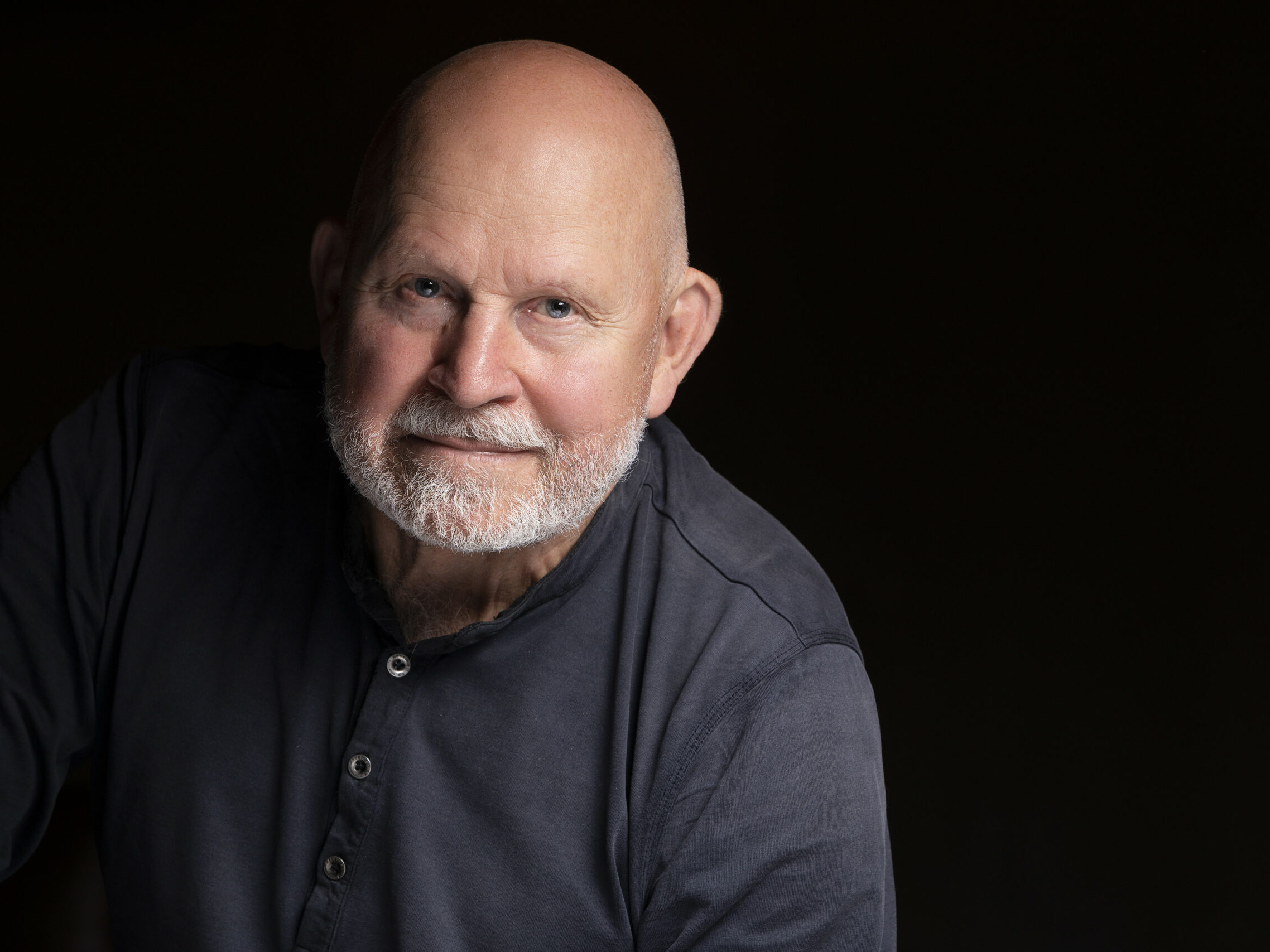
Pēteris Vasks
(16.04.1946 )
"Music is the most powerful of all the muses, since it reaches the divine most easily. Yes, music is an abstraction, but sounds are able to express the spirit. That cannot be expressed in words. All around me the flesh is spoken about, but I want to shout: Where is the spirit, the soul? Souls are as overgrown as the jungle. That is why in my sounds I try to uphold a beam of light."
Pēteris Vasks
Pēteris Vasks was born on April 16th, 1946 in Aizpute to a Baptist minister’s family. He studied at the Emīls Dārziņš Music School. In 1970, he graduated from the Lithuanian State Conservatory in Vytautas Sereika’s contrabass class, in turn graduating the Latvian State Conservatory composition class in 1978 (Valentīns Utkins’s class).
From 1963 to 1974, Pēteris Vasks played the contrabass in the Symphony Orchestra of the Latvian National Opera, the Lithuanian National Symphony Orchestra, and the Latvian Philharmonic Chamber Orchestra. From 1978 to 1989, Pēteris Vasks worked as a teacher in the Salacgrīva, Zvejniekciems, and Jelgava Music Schools. As of 1989, the composer has been working in the Emīls Dārziņš Music School.
Since the end of the 1980s, Pēteris Vasks has received compositional commissions and has worked with well-known musicians from many different countries (for example, the Ostrobothnian Chamber Orchestra and conductor Juha Kangas, violinist Gidon Kremer and the orchestra Kremerata Baltica, cellist David Geringas, the Kronos Quartet, The Hilliard Ensemble, the Latvian Radio Choir). He also participates in many different international music projects (The Stockholm New Music Festival, The Lockenhaus Music Festival in Austria, and others). Many of Pēteris Vasks’s works have been used by choreographers from many different countries for original ballet productions.
Pēteris Vasks is the only Latvian composer who has a contract for regular release of work signed with the world famous music publishing company Schott Musik International. For his vivid creative work the composer has received awards and many honours both in Latvia, as well as many countries outside of Latvia. In 1994, the composer was elected honorary member of the Latvian Academy of Science, and in 2001 honorary member of the Swedish Royal Music Academy. For his significant contribution to cultural development, in 1996 Pēteris Vasks was awarded the University of Vienna Herder’s Award and the Baltic Assembly Award. In 1993, 1997, and 2000, the composer was a laureate of the Latvian Great Music Award.
With the aim of facilitating the development of Latvian music, the Pēteris Vasks Fund was established in 2011. In his creative work, Pēteris Vasks tends to speak about global and timeless problems. Birth and death, hate and forgiveness, harmony and dissonant chaos are themes that are represented in many different sonic forms in all of the composer’s works.
Though the composer has mastered and in his own language synthesized many different 20th century compositional techniques, the dominating musical expression is a desire to certify the necessity of a harmonic world feeling, to renew the worth of the classical music and bestow upon it a new sound. Altogether, neoromanticism is clearly sensed in Vasks’s works and an echo of a new expression of the spiritual aesthetic.
Along with Pēteris Vasks, there are bright representatives of this aesthetic among the composer’s contemporaries, for example, the Estonian Arvo Pärt, the Pole Henryk Mikołaj Górecki and the Georgian Giya Kancheli.
Jānis Kudiņš
